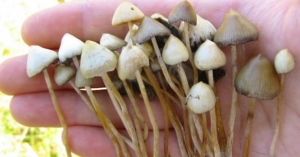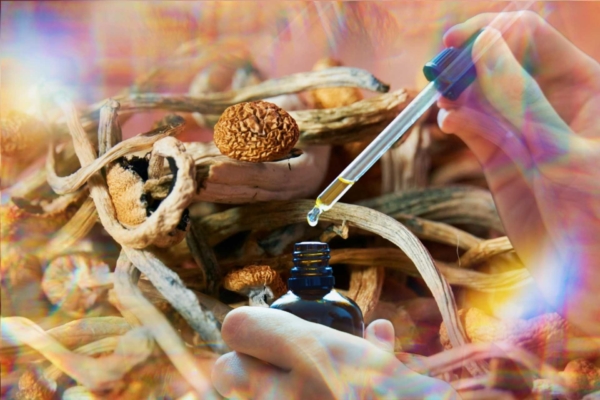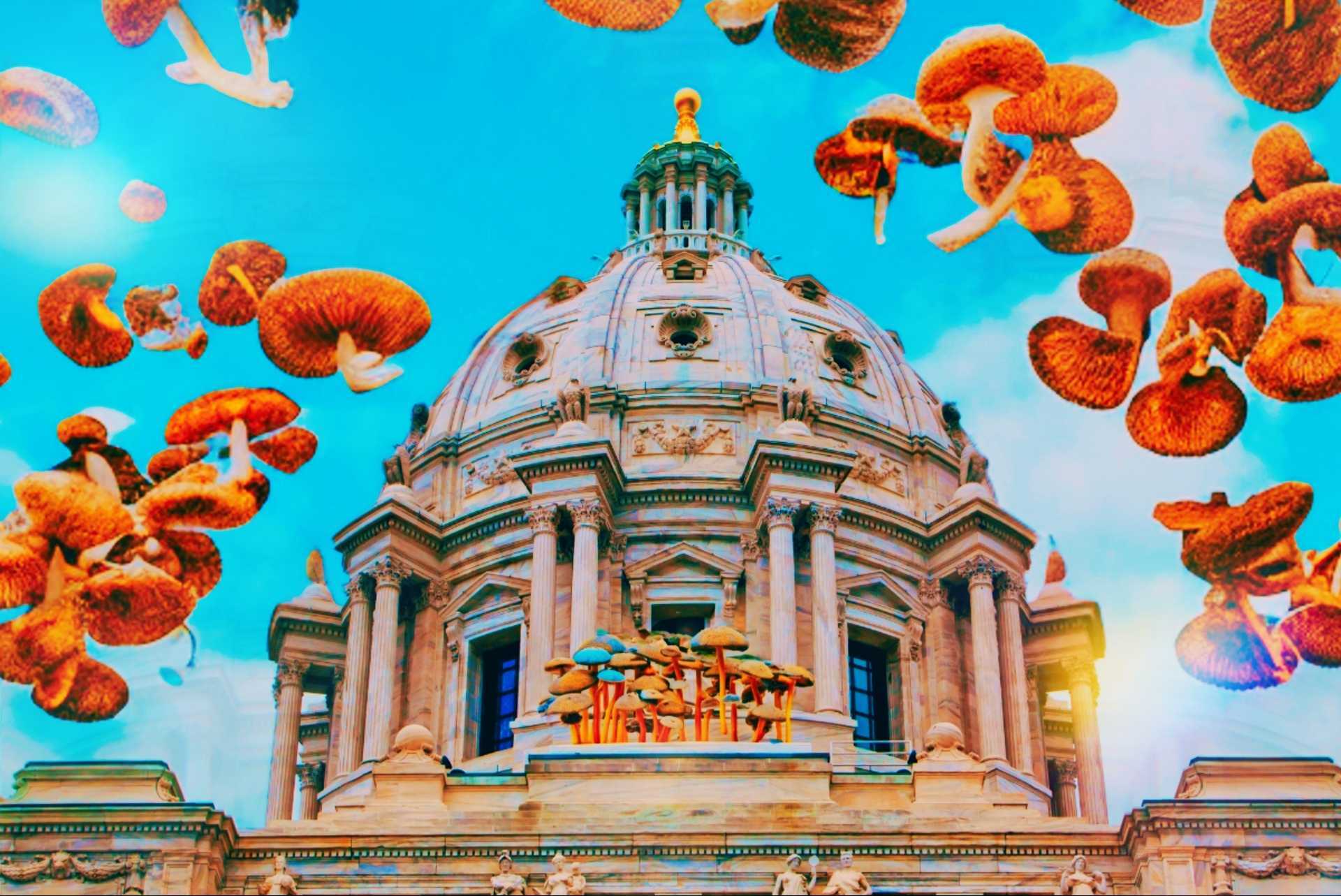
In the world of psychedelic news, exciting developments are unfolding. Using opioid settlement funds, Kentucky will explore ibogaine’s potential to treat opioid addiction.
After negotiations, the Nevada Senate passed a bill that will create a research group in hopes of regulating access to psychedelics for therapeutic purposes. Phase 3 of Compass Pathways’ trial investigating psilocybin for treatment-resistant depression begins following phase 2b’s success.
Kentucky prepares to launch research on an experimental psychedelics treatment for opioid dependence
Following the collection of $842 million from settlements received from federal lawsuits against pharmaceutical companies for their role in the opioid crisis, the Kentucky Opioid Abatement Advisory Commission has pledged $42 million to fund a program that will study the use of ibogaine, a plant-based hallucinogen, to combat opioid dependence.
Ibogaine is a lesser-known substance than psilocybin or MDMA but has shown promising effects on people with addiction. Harvested from the root of a Central African plant, the plant has helped opioid-dependent patients reduce or halt their use of these pharmaceuticals. The Multidisciplinary Association for Psychedelic Studies (MAPS) claims its effects last between 18 and 36 hours.
Unfortunately, there have been cases of cardiac arrhythmias and even deaths linked with the substance on various occasions. With Kentucky having the second-highest number of opioid overdose-related fatalities, government officials are keeping an open mind in search of a possible solution to this national tragedy.
Colorado governor approves landmark psychedelics bill
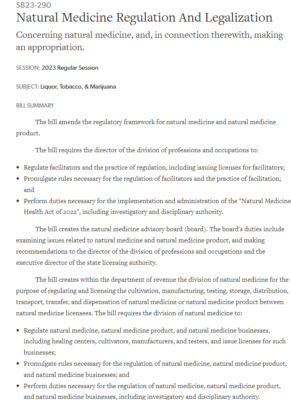
Natural Medicine Regulation And Legalization
Big news in the world of psychedelics as the governor of Colorado has signed a bill that was initially passed by voters last year.
The Natural Medicine Regulation and Legalization bill, also known as SB23-290, sets a foundation for regulating psychedelics in the state. Sponsored by Sen. Steven Fenberg and Rep. Judy Amabile, the bill was approved in the Senate with House amendments and will go into effect on July 1.
There won’t be legal restrictions on owning psychedelic substances such as DMT, mescaline, ibogaine, psilocybin, or psilocin for personal use. While psilocybin and psilocin are permitted to be consumed at “healing centers,” other substances may be allowed in the future.
According to the bill, individuals under 21 found in possession of or consuming a natural medicine product, will be fined $100 or less and receive up to four hours of substance use education or counseling. If they commit another offense, they will be fined the same amount and receive the same education requirements, along with 24 hours of useful public service.
Moreover, growing medicinal herbs would be allowed on private property within a 12-by-12-foot area. However, using potentially hazardous solvents like butane, propane, and diethyl ether while producing natural medicine products is considered a level 2 drug felony and is prohibited for non-licensed individuals. This psychedelic news comes amidst a growing shift in public opinion towards the potential therapeutic benefits of these substances. It will be interesting to see how other states follow suit in the future.
A bipartisan bill to fund psychedelics research toward military mental health with $75 million enters Congress
This week, Congress introduced bill HR 3684, which could create a $75 million grant to fund research to explore psychedelics’ potential to treat mental health issues in active-duty military members and train practitioners to provide these treatments.
The act, named in honor of Douglas ‘Mike’ Day, a former Navy SEAL and Silver Star recipient who passed away in March 2022, would fund Phase 2 clinical trials exploring the effectiveness of psilocybin, ibogaine, MDMA, and 5-MeO-DMT in treating PTSD, brain injuries, and chronic traumatic encephalopathies.
A softer stance on psychedelics could bring hope to active-duty military personnel and veterans, who have a suicide rate of 20 per day.
Nevada Senate approves bill to create psychedelics working group
Bill SB242, approved by the Nevada Senate, encourages psychedelic research and allows for controlled therapeutic use in specific cases. The initial proposal also included legalizing psilocybin and studying MDMA, but it got cut back before passing in a 16-4 vote on May 29th.
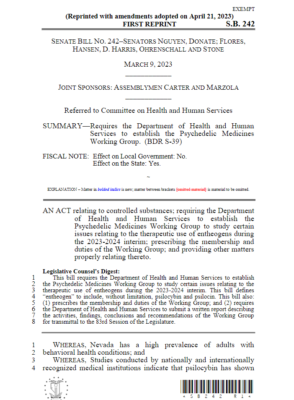
Its focus is on creating a Psychedelic Medicines Working Group to analyze how these substances improve physical and mental well-being. This 15-member group would function under Nevada’s Department of Health and Human Services and explore how psilocybin and psilocin can improve the condition of patients with PTSD, substance abuse disorders, and major depressive disorders.
Within the confines of federal, state, and local laws, the group also seeks to develop a plan to allow access to these compounds for therapeutic purposes.
Phase 3 clinical trial on psilocybin for depression begins
The largest phase 3 clinical trial investigating psilocybin as a possible treatment for treatment-resistant depression (TRD) began in Utah last Wednesday. Compass Pathways expects over 800 participants to enroll, and topline data will be available around the summer of 2024. It’s expected to finish by May 2025
This new instance follows Compass Pathway’s successful Phase 2b trial, in which it demonstrated how one 1mg, 10mg, or 25mg dose of psilocybin and psychological support helped 29.1% of its participants enter remission after two weeks. Larger doses correlated with more profound well-being.
After 3–12 weeks from the initial dose, only 20% of the subjects who received the highest dose had a sustained response to the treatment. Phase 3 aims to discover if a second dose of psilocybin can increase the number of people who respond positively and if repeat administration of a 10mg dose can extend its benefits over a longer period.
The study is still recruiting, so individuals with this diagnosis can sign up to participate in finding a novel solution to their ailment.
Read also: The Largest Phase 3 Trial on Psilocybin for Depression Has Kicked Off
Aspen Psychedelic Symposium at the Wheeler Opera House
The inaugural Aspen Psychedelic Symposium took place this Friday, June 2, at the Wheeler Opera House from noon to 7 p.m. Each ticket costs $28 and will give attendees unrestricted access to the numerous panels.
After becoming the second state to decriminalize the possession and personal use of psilocybin, psilocin, and other plant-derived psychedelics, Colorado has become a hub for discussion about these substances and their ability to improve their users’ lives in numerous ways.
The first of four panels, “What is Healing, What is Ceremony?” will start at noon, followed by “Mental Health Breakthroughs” at 1:30 p.m., then “The Neuroscience of Psychedelics” at 3 p.m., and “Where Do We Go From Here?” at 4:30 p.m. A diverse set of voices from various backgrounds will participate in these panels to provide nuanced takes on the subject.
Dennis McKenna, who has an extensive background in ethnopharmacological research, will close out the event with a keynote titled “Speculations on the Antiquity of Human Consciousness.”

